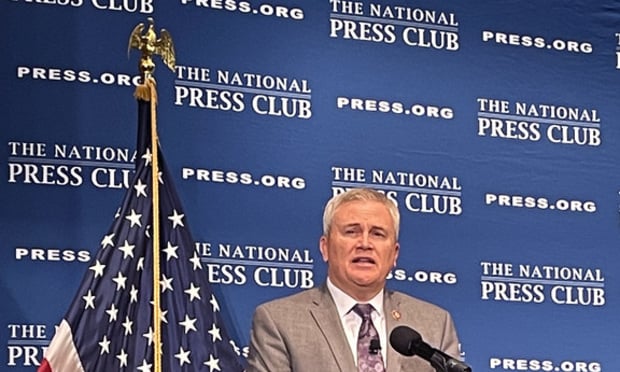 Retirement plan fees are coming under the microscope in light of the Department of Labor's newly adopted, yet controversial, Retirement Security Rule, which seeks to define who is an investment advice fiduciary for the purposes of ERISA.
Retirement plan fees are coming under the microscope in light of the Department of Labor's newly adopted, yet controversial, Retirement Security Rule, which seeks to define who is an investment advice fiduciary for the purposes of ERISA.
The final rule provides that a financial services provider will be an investment advice fiduciary under federal pension law "if the provider makes an investment recommendation to a retirement investor; the recommendation is provided for a fee or other compensation, such as commissions; and the financial services provider holds itself out as a trusted adviser by specifically stating that it is acting as a fiduciary under … ERISA; or making the recommendation in a way that would indicate to a reasonable investor that it is acting as a trusted adviser making individualized recommendations based on the investor's best interest."
A recent study from Employee Fiduciary, a 401(k) recordkeeper and third-party administrator, set out to determine whether fiduciary-grade investment advice can lower the cost of small business 401(k) plans. Conclusion: Fiduciary-grade advice is crucial for reducing costs and enhancing retirement outcomes because advisors who follow fiduciary standards recommend investments with reasonable fees, leading to additional savings through reduced investment expenses and an increased opportunity for compounding.
Recommended For You
"When 401(k) fees are deducted from participant accounts, they reduce returns dollar-for-dollar, leading to less savings to compound until retirement. This cumulative effect of 401(k) fees can cost a worker hundreds of thousands of dollars in retirement," said Eric Droblyen, president and CEO of Employee Fiduciary. "The Retirement Security Rule should blunt these losses by subjecting all retirement advice to ERISA's rigorous fiduciary standards. Our study demonstrates that fiduciary-grade investment advice lowers the total cost of 401(k) plans, resulting in higher returns for participants and more savings to compound until retirement."
Related: House Committee advances bill to overturn DOL's new fiduciary rule
All 401(k) plans require three basic administration services:
- asset custody,
- participant recordkeeping, and
- third-party administration.
According to the study, which analyzed fees from 1,109 fiduciary-grade financial advisors, fees decrease as plan assets increase:
- Smaller plans with assets up to $500,000 pay an average of 0.69%,
- Mid-sized plans between $500,000 and $1 million pay 0.64%, and
- Larger plans with assets between $1 million and $5 million pay 0.47%.
When advisor fees are combined with Employee Fiduciary's plan administration fees, total plan fees are lower than national averages. For example, plans with average assets of $189,367.06 incur total fees of 1.63% of assets, compared to the national average of 1.71% for larger plans with $500,000 in assets.
The investment advisers that work with Employee Fiduciary are legally obligated to recommend funds with reasonable fees as ERISA fiduciaries, the report said. Many choose low-cost investments like index funds and ETFs, which can result in an average expense ratio as low as 0.10% of plan assets.
© 2025 ALM Global, LLC, All Rights Reserved. Request academic re-use from www.copyright.com. All other uses, submit a request to asset-and-logo-licensing@alm.com. For more information visit Asset & Logo Licensing.







